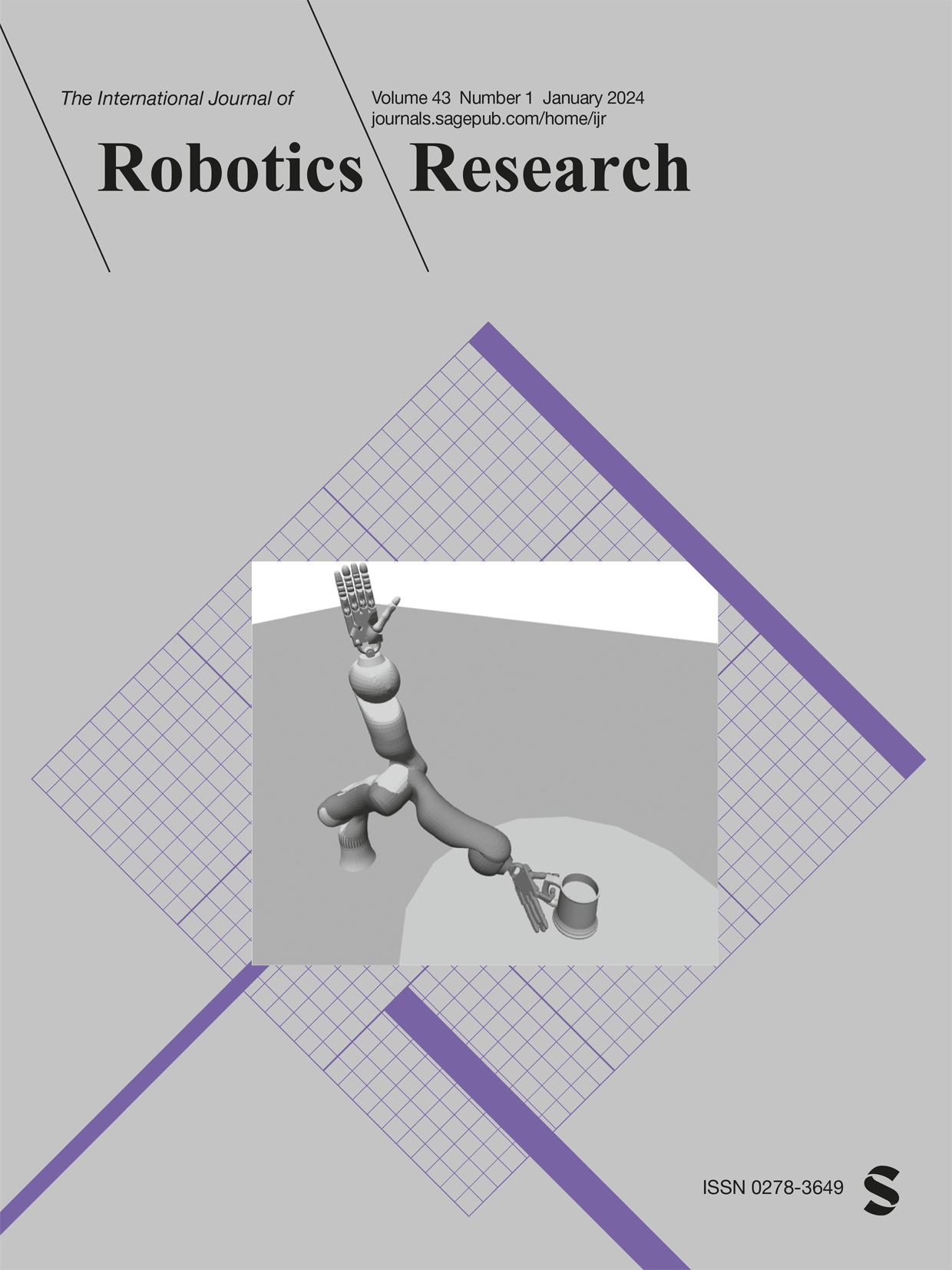基于采样路线图的有效近似最优搜索的渐进最优检测规划
IF 5
1区 计算机科学
Q1 ROBOTICS
引用次数: 1
摘要
检查规划是为机器人规划运动,使其能够检查一组兴趣点的任务,在工业、现场和医疗机器人等领域有应用。检查规划在计算上可能具有挑战性,因为运动规划上的搜索空间随着要检查的兴趣点的数量呈指数级增长。我们提出了一种新的方法,增量随机检验路线图搜索(IRIS),该方法计算检验计划,其长度和成功检验点的集合渐近收敛于最优检验计划的长度和集合。IRIS使用基于采样的算法逐步加密运动规划路线图,并在生成路线图时对生成的路线图执行高效的接近最优的图搜索。我们证明了在关于机器人和环境的非常一般的假设下,所得到的算法是渐近最优的。我们展示了IRIS在平面五自由度机械手的模拟检查任务、无人机的模拟桥梁检查任务以及在杂乱人体解剖结构中的连续平行手术机器人的医疗内窥镜检查任务中的有效性。在所有这些系统中,IRIS计算更高质量的检查计划的速度比现有技术的方法快几个数量级。本文章由计算机程序翻译,如有差异,请以英文原文为准。
Asymptotically optimal inspection planning via efficient near-optimal search on sampled roadmaps
Inspection planning, the task of planning motions for a robot that enable it to inspect a set of points of interest, has applications in domains such as industrial, field, and medical robotics. Inspection planning can be computationally challenging, as the search space over motion plans grows exponentially with the number of points of interest to inspect. We propose a novel method, Incremental Random Inspection-roadmap Search (IRIS), that computes inspection plans whose length and set of successfully inspected points asymptotically converge to those of an optimal inspection plan. IRIS incrementally densifies a motion-planning roadmap using a sampling-based algorithm and performs efficient near-optimal graph search over the resulting roadmap as it is generated. We prove the resulting algorithm is asymptotically optimal under very general assumptions about the robot and the environment. We demonstrate IRIS’s efficacy on a simulated inspection task with a planar five DOF manipulator, on a simulated bridge inspection task with an Unmanned Aerial Vehicle (UAV), and on a medical endoscopic inspection task for a continuum parallel surgical robot in cluttered human anatomy. In all these systems IRIS computes higher-quality inspection plans orders of magnitudes faster than a prior state-of-the-art method.
求助全文
通过发布文献求助,成功后即可免费获取论文全文。
去求助
来源期刊
CiteScore
22.20
自引率
0.00%
发文量
34
审稿时长
6-12 weeks
期刊介绍:
The International Journal of Robotics Research (IJRR) has been a leading peer-reviewed publication in the field for over two decades. It holds the distinction of being the first scholarly journal dedicated to robotics research.
IJRR presents cutting-edge and thought-provoking original research papers, articles, and reviews that delve into groundbreaking trends, technical advancements, and theoretical developments in robotics. Renowned scholars and practitioners contribute to its content, offering their expertise and insights. This journal covers a wide range of topics, going beyond narrow technical advancements to encompass various aspects of robotics.
The primary aim of IJRR is to publish work that has lasting value for the scientific and technological advancement of the field. Only original, robust, and practical research that can serve as a foundation for further progress is considered for publication. The focus is on producing content that will remain valuable and relevant over time.
In summary, IJRR stands as a prestigious publication that drives innovation and knowledge in robotics research.

 求助内容:
求助内容: 应助结果提醒方式:
应助结果提醒方式:


